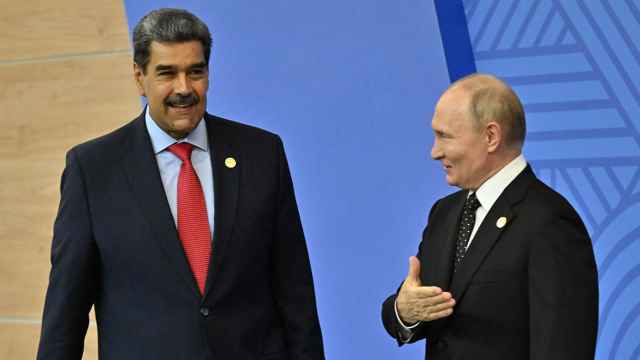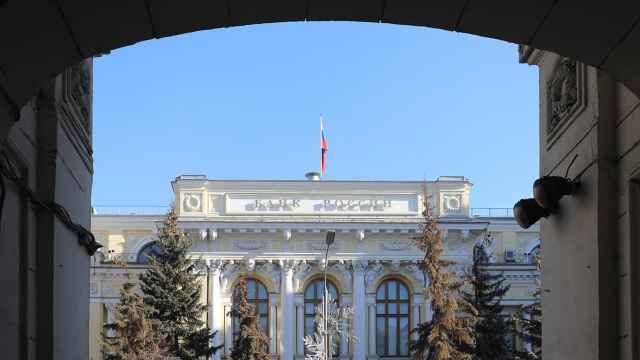A bill submitted to the State Duma by President Dmitry Medvedev would ban political parties from putting nationally known figures on regional parliamentary election lists while increasing the number of electoral districts from 80 to 225, the Kremlin website .
Analysts and opposition politicians told The Moscow Times that the bill stands to benefit the ruling United Russia party most and would diminish the electoral chances of smaller parties that have fewer popular regional leaders.
Medvedev promised the bill in his state-of-the-nation address in December, saying it would secure equal representation of each region in the State Duma as opposed to the current situation where some regions lack representation.
The bill was announced as part of electoral reforms aimed at liberalizing Russia's political life.
Under current law, the Duma is formed with tickets composed by parties ahead of the vote, with seats distributed to candidates starting from the top of the list down. The number of a party's candidates that eventually get seats is proportional to the number of votes the party garnered nationwide.
All the parties put popular national leaders on top of their regional lists to attract voters. Such leaders are often referred to as parovozy, or locomotives. After the elections, the so-called locomotives cede their seats to candidates further down the list.
The bill would not do away with the lists or the proportional distribution system, but would ban parties from using locomotives to turn out the vote. It would also guarantee two representatives from each electoral district.
A note attached to the bill specified that parties will have the right to field from none to four candidates in each of the 225 districts, while its federal list must include a minimum of 100 candidates.
Currently, there is no limit to the number of regional candidates, but a party must have at least 70 regional lists, the note said. The total number of electoral districts is 80.
"The current electoral system is helping United Russia and so will the new one," said St. Petersburg-based political analyst Grigory Golosov.
The bill was drafted "to create an appearance of reform," he said.
"The bill's authors intended it to play into the hands of United Russia," political analyst Mikhail Tulsky said.
Sergei Obukhov, a State Duma deputy with the Communist Party, lamented the fact that federal party leaders "will no longer be able to campaign on the regional level."
"All these changes for us are like flogging a dead horse for one simple reason — the elections are unfair," said Galina Boldyreva, who heads the Volgograd region branch of the Yabloko party.
Earlier bills still pending before the Duma propose to restore direct gubernatorial elections, simplify the registration of political parties and allow participation in parliamentary and regional legislature elections without requiring the collection of supporters' signatures.
A Just Russia leader and presidential hopeful Sergei Mironov spoke Thursday in favor of abolishing "the presidential filter" in fielding candidates for direct gubernatorial elections, which the Kremlin is planning to return, Interfax reported.
A Message from The Moscow Times:
Dear readers,
We are facing unprecedented challenges. Russia's Prosecutor General's Office has designated The Moscow Times as an "undesirable" organization, criminalizing our work and putting our staff at risk of prosecution. This follows our earlier unjust labeling as a "foreign agent."
These actions are direct attempts to silence independent journalism in Russia. The authorities claim our work "discredits the decisions of the Russian leadership." We see things differently: we strive to provide accurate, unbiased reporting on Russia.
We, the journalists of The Moscow Times, refuse to be silenced. But to continue our work, we need your help.
Your support, no matter how small, makes a world of difference. If you can, please support us monthly starting from just $2. It's quick to set up, and every contribution makes a significant impact.
By supporting The Moscow Times, you're defending open, independent journalism in the face of repression. Thank you for standing with us.
Remind me later.





